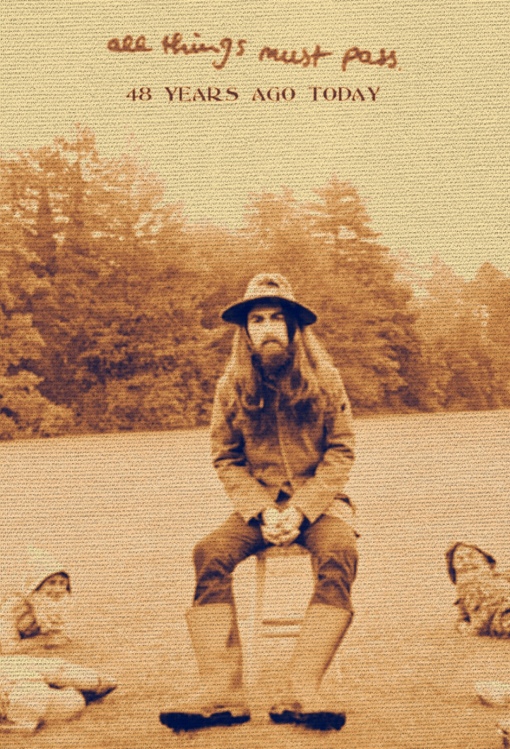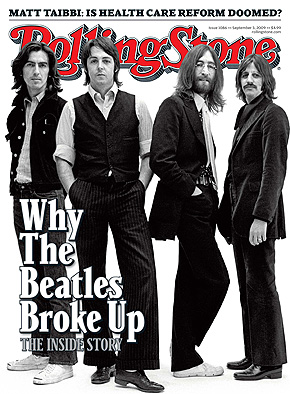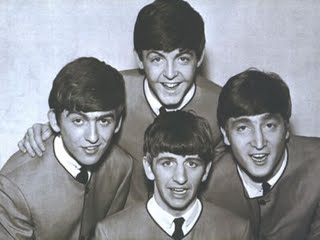I’ve not written much lately. I’ve been busy with summer stuff and unrelated interests. When I have written, though, it seems like the content has been pretty Beatles-heavy. That will probably always be the case for me. It’s not a matter of having limited tastes as much as simply finding the Beatles more fascinating than most other artists. But I digress…
Apparently Rolling Stone has published a special edition magazine dedicated to the 100 Best Beatles Songs. Rolling Stone loves these lists. Personally, I’m starting to find them cliche — and usually Rolling Stone manages to mess them all up — but I have to admit that I’m a bit intrigued by this one.
Yahoo music blogger, Paul Grein of “Chart Watch,” in the context of this Rolling Stone list, has tackled a topic embedded in that list: “Who was the foremost member of the foremost group of all time?”
http://new.music.yahoo.com/blogs/chart_watch/61973/chart-watch-extra-was-it-john-or-paul/
Really, there is no right way to answer that question. There is no one single way of comparing and contrasting Lennon and McCartney. If you pick one basis for comparison, like lyricism for instance, you’d be giving short shrift to another basis, say musicianship.
That said, I’ve maintained that for years that Paul McCartney really was the single most important member of the band from 1966. To make the historical case for that, I’d have to write a book. There’s no space for that here . Anyone knowledgeable and honest about it would have to admit that Paul is the person that dragged the band into the studio. He kept them working after their touring days ended. Had they waited around for John — a self-described “lazy mother *****er” — Revolver might have been the last Beatles album made.
McCartney was also a better musician than Lennon by miles. Pick any instrument: guitar, bass, piano, drums. Paul played it better than John. McCartney is on just about any list of “most important bassists in rock history” that you find. Who ever mentions John as an influential guitarist? I’ve seen his name on some lists, but he’s an also-ran amongst the so-called rock greats.
Like Brian Wilson, Paul simply understood musically innately. He could here an entire tune in his head, with much of the melodies and counter-melodies, sensing where to put which instruments and what to have them playing. According to George Martin, John always struggled to communicate his musical ideas in concrete, understandable ways. His requests were often vague. Paul, by contrast, usually knew the sound he was going for and communicated it well.
It is easy to say Lennon was the “better lyricist.” He definitely had the sharper tongue and painting images with words seemingly came easier to John than Paul. But Paul, as a lyricist, stands up against just about anyone in the rock business, especially those whose careers have lasted as long as his. Rather make some case song-for-song, I’d urge those interested in this debate to listen to McCartney’s Beatles work and pay attention to the lyrics. For every song like “Hello Goodbye” there are two songs like “For No One” or “You Never Give Me Your Money.”
This is a debate that will rage as long as people care enough about the Beatles to talk about them. Enjoy the argument.












 As much as I write about the Beatles, sometimes it feels like an insurmountable task to really break down their music, even just one album or song at a time, in any sort of interesting, meaningful way. Anything that could possibly be said about them has probably been said. Professional music critics tackle the hard task of reviewing their music. Not being anything approaching an “audiophile” or formally trained musician — I’m just a fan — I sometimes feel highly unqualified to review music.
As much as I write about the Beatles, sometimes it feels like an insurmountable task to really break down their music, even just one album or song at a time, in any sort of interesting, meaningful way. Anything that could possibly be said about them has probably been said. Professional music critics tackle the hard task of reviewing their music. Not being anything approaching an “audiophile” or formally trained musician — I’m just a fan — I sometimes feel highly unqualified to review music.
